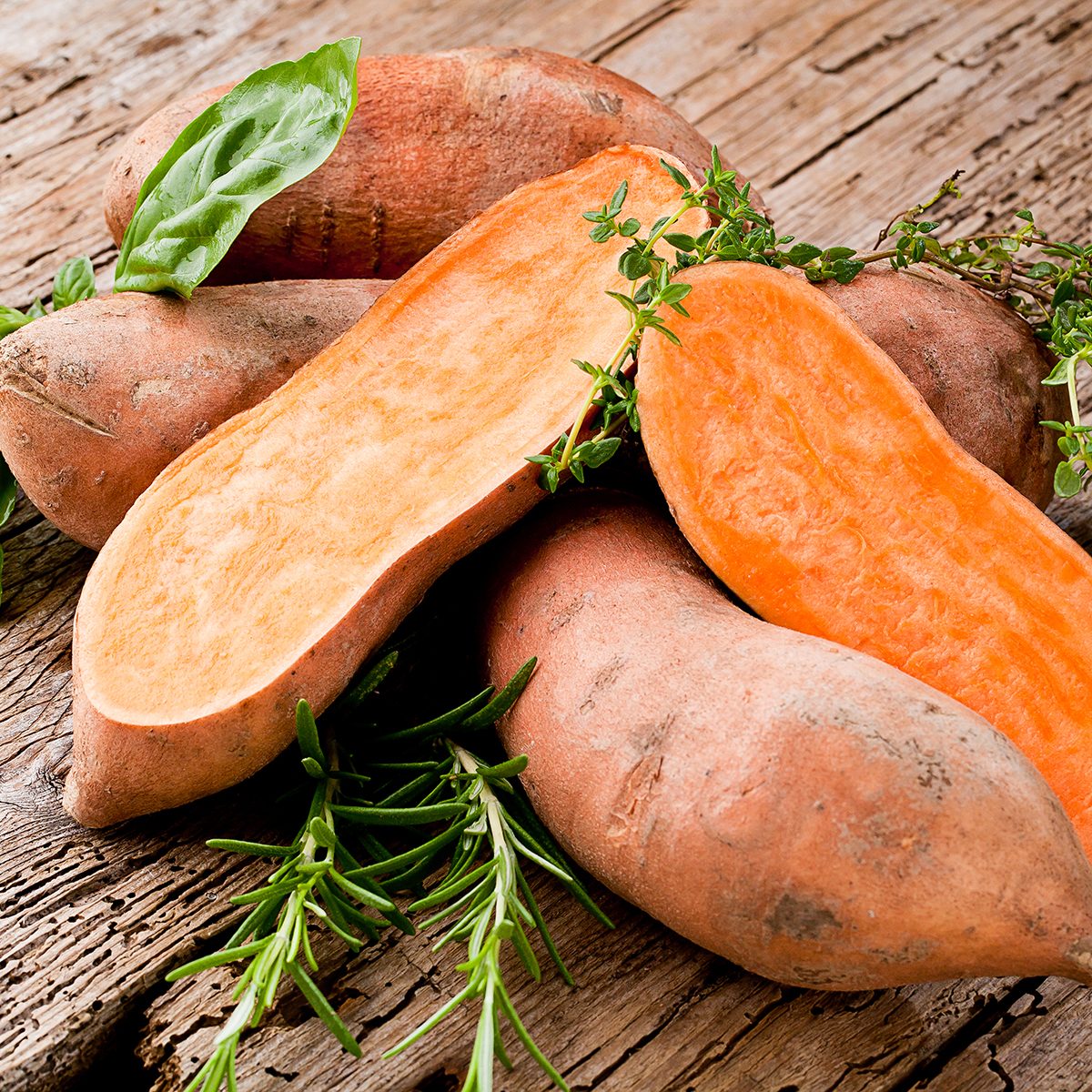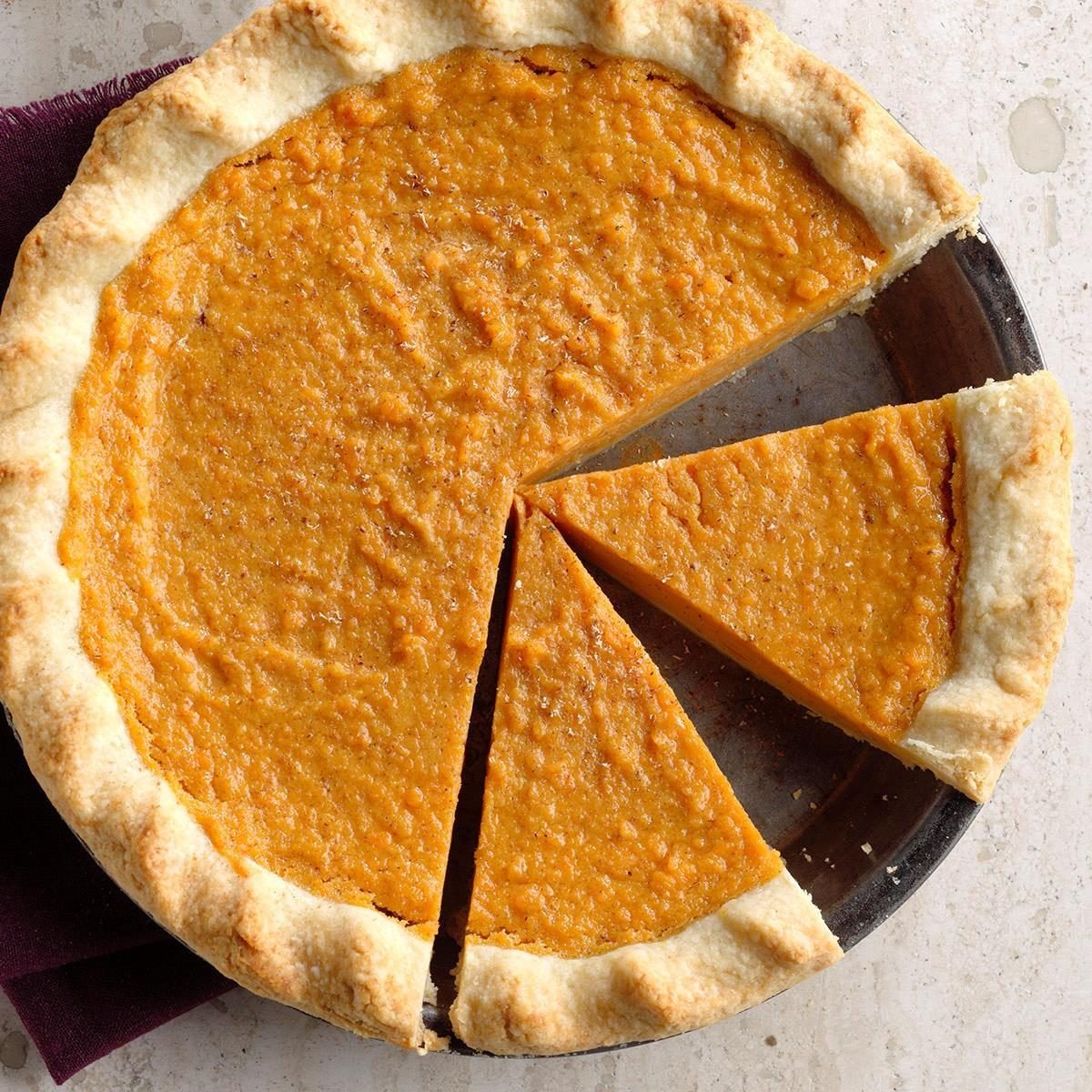
Buying the ones with blemishes and bruises
I’m all about ugly food, don’t get me wrong. But sweet potatoes with cuts, gouges, bruises and blemishes have already started going bad. You can cut out the bruised parts and cube the rest for roasted side dishes, but they’re not a candidate for any recipe that calls for a whole baked sweet potato.

Storing them in the refrigerator
The worst thing you can do with your sweet potatoes is put them in the refrigerator. It’s too cold in there, which changes the potato’s cell structure and makes them hard in the center (even after you cook them). The best way to store sweet potatoes is to find a cool, dark area and they’ll cook up soft and sweet, every time. Did you know there is more than one type of sweet potato?

Skipping the scrub-and-wash step
You always—always—want to wash the skins before cooking or cutting sweet potatoes. It’s never a bad idea to give them a firm scrubbing with a clean vegetable brush, either. Sweet potatoes do grow in the ground, after all, and you don’t want any of that dirt or grit to end up in your finished dish.

Not eating the skins
A lot of people wonder if sweet potato skins are edible. They are, and you should definitely be eating them! Keeping the skin on concentrates the sweet potato’s nutrients, and it also helps the insides stay moist as the potato cooks. Find our best healthy sweet potato recipes.

Storing cut sweet potatoes without water
Cutting sweet potatoes in advance is a great way to meal-prep your way to an easier weeknight dinner. You can absolutely cut sweet potatoes a day or two in advance, but make sure to store them in cold water in the refrigerator. Otherwise, they’ll dry out pretty quickly after they’re cut.

Boiling them for sweet potato pie
Sweet potato pie is a fall staple—I’ll even go so far as to say it’s better than pumpkin pie! Many recipes call for boiling or steaming the potatoes to cook them for the filling, but this makes the pie watery. Instead, bake the potato in the oven to concentrate its sweetness.

Baking them without poking holes in the skin
I have first-hand witnessed a potato explosion in the oven, and let me tell you: It is not a pretty sight. The pressure inside a sweet (or regular) potato can build up in a hot oven. Pricking small holes in the skins with a fork is an easy way to let that steam escape. Find all kinds of savory ways to eat sweet potatoes.

Not checking if the potato is actually cooked
There is nothing worse than an undercooked sweet potato. Instead of being tender and moist, it’ll be hard and crunchy. Since every sweet potato varies in size and thickness, you can’t simply trust that it will cook in 45 minutes. Check for yourself by poking the potato with a fork. If it goes in easily, it’s ready to eat!

Using the microwave to cook sweet potatoes
Okay, I get it: Baking a sweet potato in the oven can take 45 minutes to an hour, or a mere 5 minutes in the microwave. The only problem is that the microwave cooks the potato unevenly, remaining hard and lumpy in some spots while overly soft and mushy in others. Luckily, you don’t have to cook sweet potatoes every night; once cooked, they’re good in the refrigerator for up to a week!

Thinking they’re only for Thanksgiving dinner
Sweet potatoes are so much more than the marshmallow-topped holiday side dish you had growing up. There are so many ways to cook (and eat) sweet potatoes—including for breakfast! Don’t be afraid to use them in place of regular potatoes in your favorite recipes. You can toss ’em on the grill, use them in soups and even turn them into dessert.
The post 10 Mistakes You Might Be Making with Sweet Potatoes appeared first on Taste of Home.
Lindsay D. Mattison